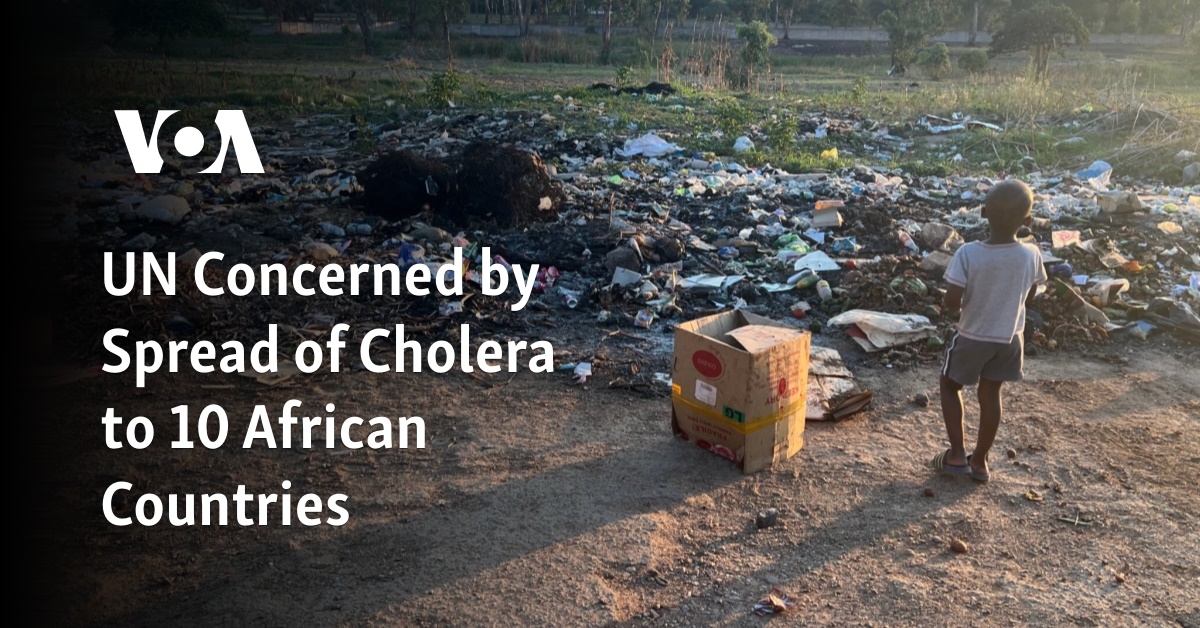The U.N.’s Children’s Fund expressed alarm this week about a cholera outbreak in Africa that has spread to at least 10 countries, with the situation in Zambia and Zimbabwe “very serious.”
Dr. Paul Ngwakum, the regional health adviser for UNICEF in East and Southern Africa, said about 200,000 cases have been reported and more than 3,000 lives taken by the disease.
Of the 10 countries he named as having an active outbreak, Ethiopia, Mozambique, Tanzania, Somalia, Zambia and Zimbabwe are in “acute cholera crisis.”
“The key drivers are long-term poor water sanitation and hygiene conditions, exacerbated by changing weather patterns, climate change leading to floods and droughts, end-of-year festivities, inadequate community sensitization [and] late care-seeking behavior for those that are affected,” Ngwakum said.
“Children, unfortunately, carry the lion’s share of the affected,” he said. “For example, over 52% of the cases in Zambia are children less than 15 years old.”
Ngwakum said Zambia and Zimbabwe are experiencing a rapid rise in the number of cases since the Christmas and New Year holidays, with 1,000 cholera cases reported a week in each of the neighboring countries.
“The situation in Zambia and Zimbabwe is very serious,” he said. “These two countries are the most affected in the region. In Zambia, nine out of 10 provinces are reporting cases.”
The disease’s fatality rate is alarmingly high, Ngwakum said, with 4% of the more than 9,000 cases ending in death.
“This is extremely high because the acceptable threshold is below 1%,” he said. “Since the beginning of 2024 alone, Zimbabwe has recorded over 17,000 cases, with about 384 deaths. … And these continue to spread geographically.”
In Zimbabwe, a shortage of purified water is forcing residents to depend on open sources. That, along with uncollected refuse and running sewage, are being blamed for the waterborne disease.
Douglas Mombeshora, Zimbabwe’s health minister, said the central government is doing all it can to contain the outbreak, starting in the capital, Harare.
“If you move around … Harare, people are just dumping garbage in undesignated areas, and this has not been collected,” Mombeshora said. “So government has mobilized resources so that we clean up Harare. And government is moving in to mobilize resources to procure water-treating chemicals. Supply of potable water has dropped from 350 megaliters to 200 megaliters per day.”
Itai Rusike, executive director of the Community Working Group on Health in Zimbabwe, called on the government to declare a national disaster so that international aid agencies such as WHO, UNICEF and USAID can swiftly help to contain the cholera outbreak.
“All the measures to end cholera are in the purview of the government — central government or local government — by providing safe water, safe sanitation and also hygienic safe disposal,” Rusike said. “So the buck stops with the government in making sure that people are provided with uninterrupted potable water, refuse is collected on time, burst sewer pipes are fixed [promptly] and the general public are given information about cholera guidelines and protocols.”
UNICEF fears that if the outbreaks are not controlled, it will mean schools closing — as is already the case in Zambia.







